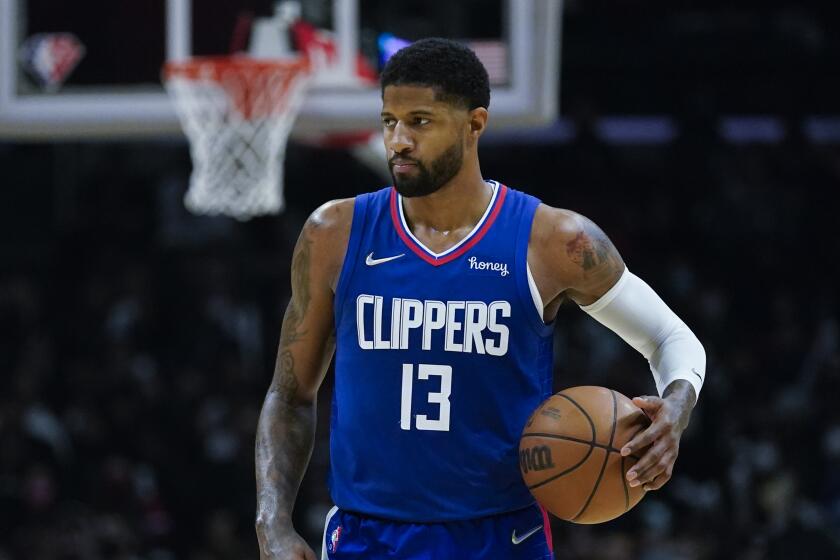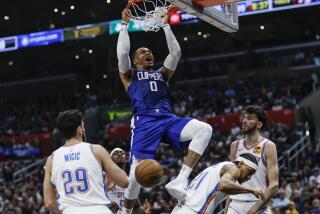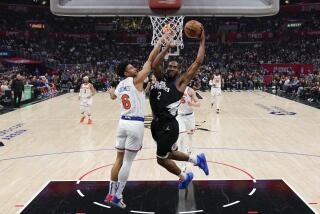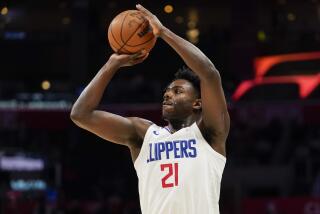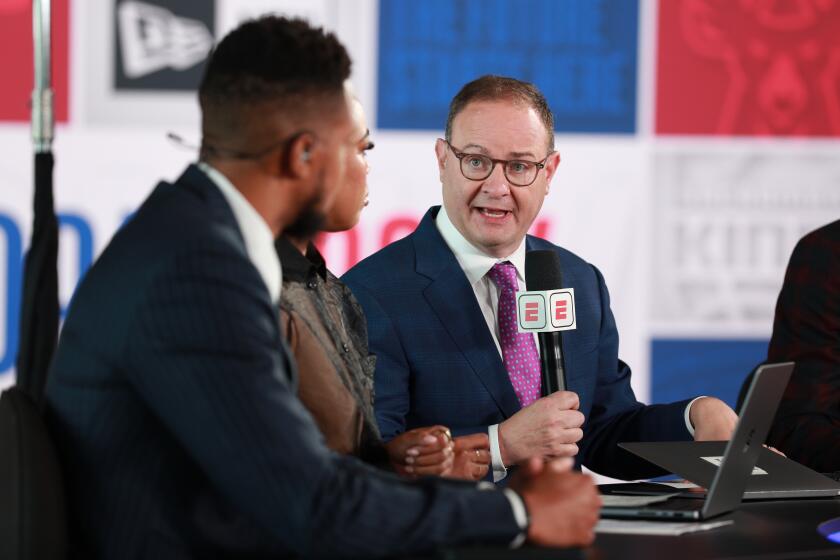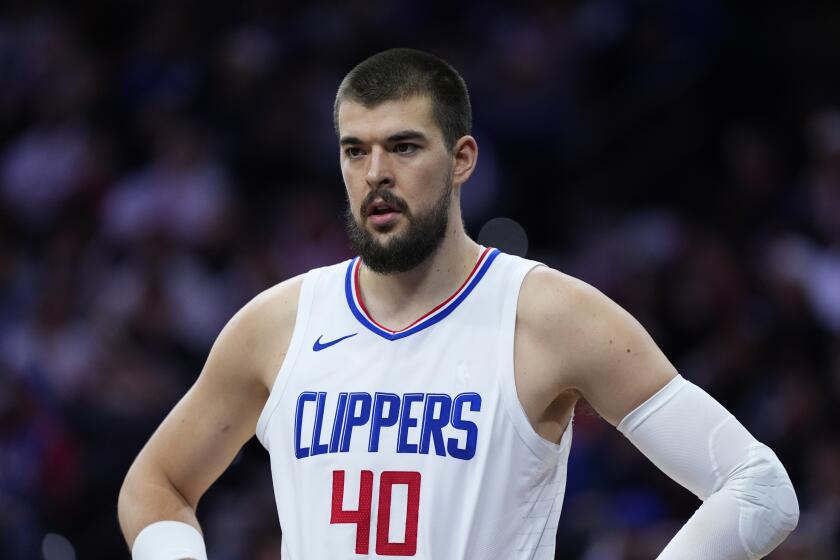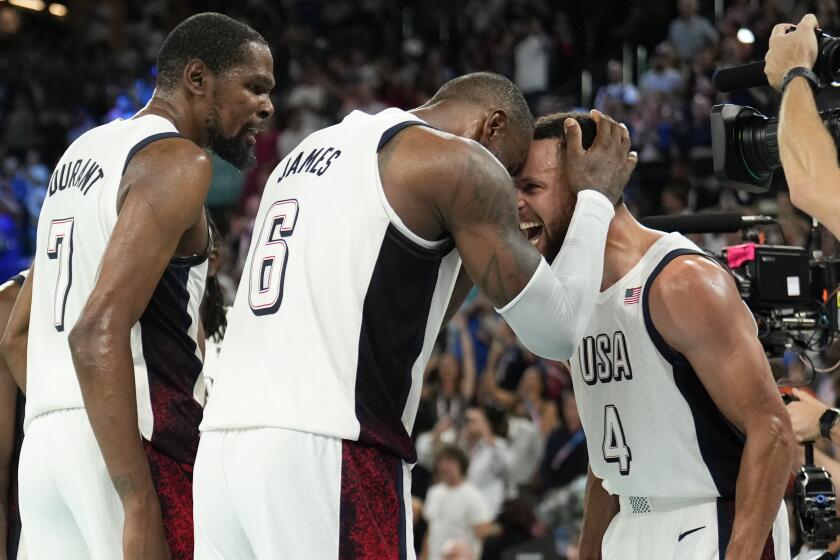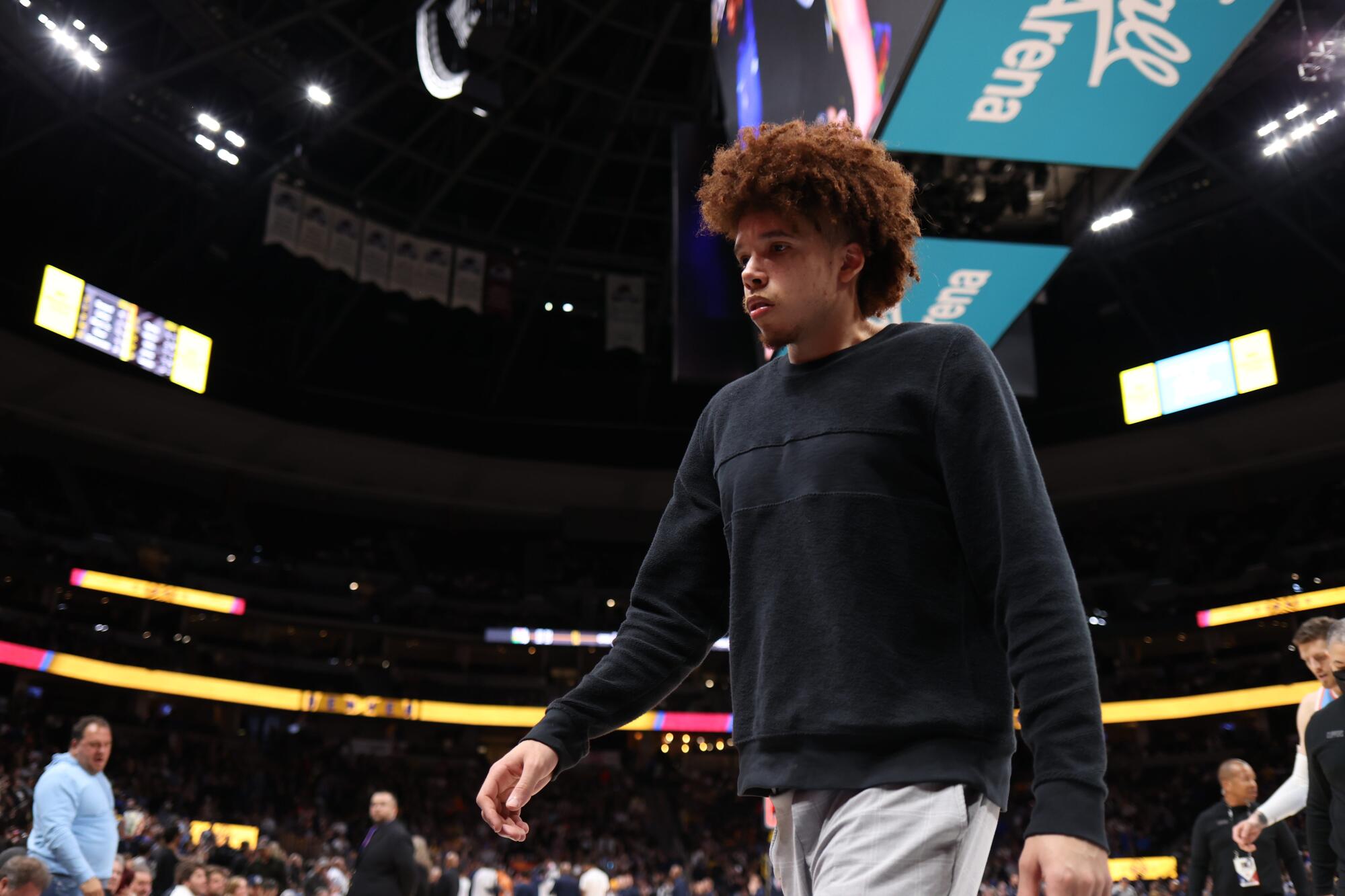
The quiet was the first thing Clippers assistant coach Larry Drew noticed about Jason Preston last summer. It wasn’t until a month later, after the team left Las Vegas’ Summer League and returned to its Playa Vista training facility for offseason pickup games, that the second-round draft pick truly announced himself with a play that Drew still talks about, eyebrows raised, months later.
“The action hadn’t even developed,” Drew said. “But he saw it before it developed, and he made the play before it developed.”
Drew has coached NBA point guards for 30 years and played the position in the league for 10. Not every point guard can see the play before it develops, he said. But for Preston, confidence in his vision seemed to be hard-wired.
A high school benchwarmer who was not recruited out of prep school, Preston envisioned a future in basketball before anyone else saw such a career for him. After losing his mother to cancer at 15, he chose to see hope. Amid six months of recovery from an injury he never saw coming in late September, a wrong landing that virtually ended the rookie season he had fought so hard to reach before it began, he has taken the long view.
Rated the second-best passer in the draft class by the Clippers, Preston played so well during pickup runs that one staffer called him the most impressive of the team’s three rookies, “by far.”
“The way he was picking things apart, the way he was setting us up, he wasn’t playing checkers on the court,” veteran point guard Reggie Jackson said. “He was playing chess.”
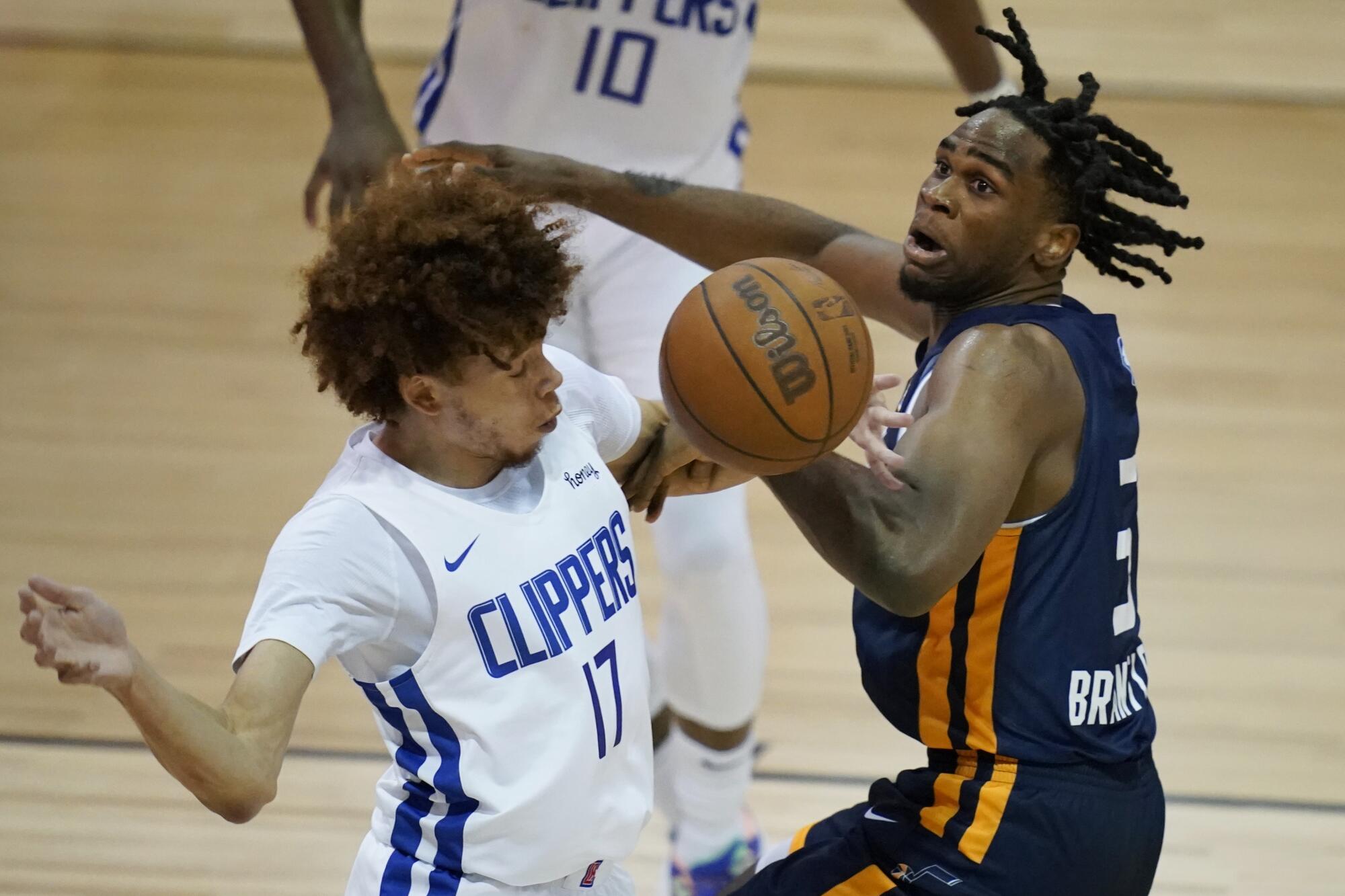
Days before training camp, Preston’s right foot landed on another player’s shoe, leaving him in pain he thought was a severe ankle sprain that would cost him two weeks.
“A couple hours later I go to the doctor and they’re talking about [missing] six months,” Preston said of having to undergo surgery. “And I was like — I was just blown away.”
::
Learning to play point guard in the NBA is difficult for healthy rookies, let alone someone trying to make the jump when their foot is in a protective boot and elevated on a scooter. To grasp the nuances of the game’s faster pace, coaches’ plays and teammates’ personalities from the sideline would be similar to learning to fly a plane without stepping foot in a simulator.
Preston subscribes to a “positive mindset” and a faith that tells him events happen for reasons that will be revealed later, and he has held tight to both since surgery last fall on what he called a Lisfranc injury. One look back at the footage of his injury, which damaged ligaments in the middle of his foot, was enough before he was looking forward again.
“It was kind of like a blessing in disguise,” Preston said. “I can get my body right, I can work on some things I need to get better at, I can watch. I wasn’t really thinking about, ‘Ah, dang, I’m going to be out for so long.’ I was more so thinking, what could I have done with this time that I have?”
The 22-year-old has spent the last six months completing online classes to earn his degree this spring from Ohio University’s sports management program as well as a finance minor, all while undergoing an NBA education — attempting to flatten his learning curve in time for his return to full contact, which he anticipates will come in the next couple of weeks.
He asks questions, devours film and has added muscle to his 6-foot-4 frame. What Preston did not do was wallow in what could have been. Not when he already had seen himself emerge from much worse.
“To be a young player and to have gone through what he’s gone through you can just really see it,” Drew said. “Not just see, but feel that he wants it all. He wants it all. He wants the knowledge of what it really takes to be not just a good point guard, but a successful point guard.”
Drew wasn’t the only coach struck by what he’d seen from Preston in a preseason pickup game. In 2018, before Preston’s freshman season at Ohio, then-Bobcats coach Saul Phillips established two new rules.
“I said guys, let’s just make sure we’re passing off two feet, making good decisions — except for you, Jay, because you seem to hit every pass that you make,” Phillips said.
By that point, Preston had been making the difficult appear manageable for years.
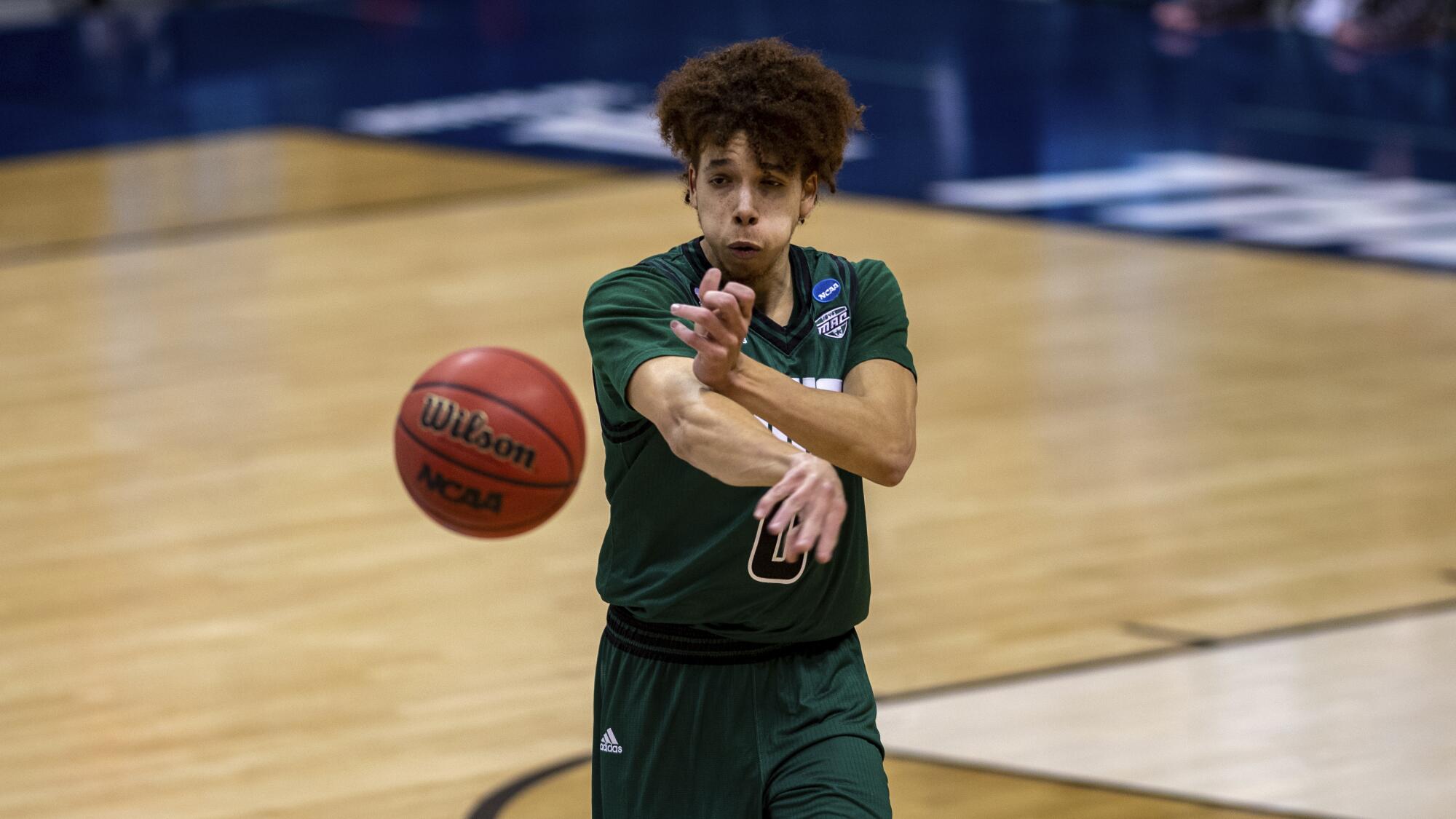
::
Preston was 15 when his mother, Judith Sewell, died from lung cancer, and with his father not part of his life and his legal guardian, an aunt, living in Jamaica, Preston finished high school in Orlando, Fla., by moving in with a cousin and two of Sewell’s closest friends. Basketball was the sport he’d loved since he was 8, and Sewell had encouraged him to study game broadcasts intently, but it was little escape. After earning few minutes as a junior and senior, his most-visible basketball contributions were the blogs he wrote for a Fansided site that covered the Detroit Pistons.
“It’s always your response to things in life that really matters,” Preston said during last year’s NCAA tournament. “You can let bad things tear you down and you can have a negative outlook, but that’s not going to help you at all. So keep pushing, keep fighting and know that ultimately everything happens for a reason, and it’s all part of God’s plan. I know she’s in a better place, so that can be a little bit comforting.”
He was just another student at Central Florida when a friend needing a fifth man for an AAU tournament called Preston.
His play there earned Preston a shot at a prep school in Tennessee, where a former manager for the Ohio basketball program passed along a tip about a point guard with poofy red hair. A tape arrived on the desk of Phillips, who now coaches at Northern State in South Dakota.
“It was like the JFK tapes,” he said. “It was grainy, it was a weird angle, and I’m watching him just sling the ball all over the place.”
When NBA teams called Phillips last spring for background checks, he told them about more than Preston’s passing. His affability engendered respect, not resentment, within the locker room amid immediate success as a freshman. How he’d remained low key despite growing stardom in a small college town.
“He’s just one of the best human beings I know, period,” Phillips said. “He didn’t choose to go through what he went through, but he never ever wallowed in it. … You’re just cheering for a guy like that. Believe the hype, it’s true. He’s brings light into the room. That’s what I can tell you about him. The fact that I got to cross paths with him, it was good for me; it was good for everybody around me.”
The Clippers drafted Preston, in part, because they believed his history would help him navigate the obstacles that come with the NBA life, and teammates noticed quickly what Jackson called an “old spirit” sensibility, closer to that of a veteran than a rookie.
“Sometimes when you’ve been through a lot in life, it matures you quicker,” forward Marcus Morris Sr. said. “You can tell that he just doesn’t take it for granted. If I was a young player back in my days looking at myself, not being able to play, I don’t know how my attitude would be.”
Until March, Preston’s rehab kept him in Los Angeles. Unable to travel with teammates, Preston didn’t allow himself to be disconnected and retreat into the background. He has become known within the Clippers as a basketball junkie who has turned coaches, staffers and teammates into a support system that feeds an incessant curiosity.
“I ask a lot of questions,” Preston said.
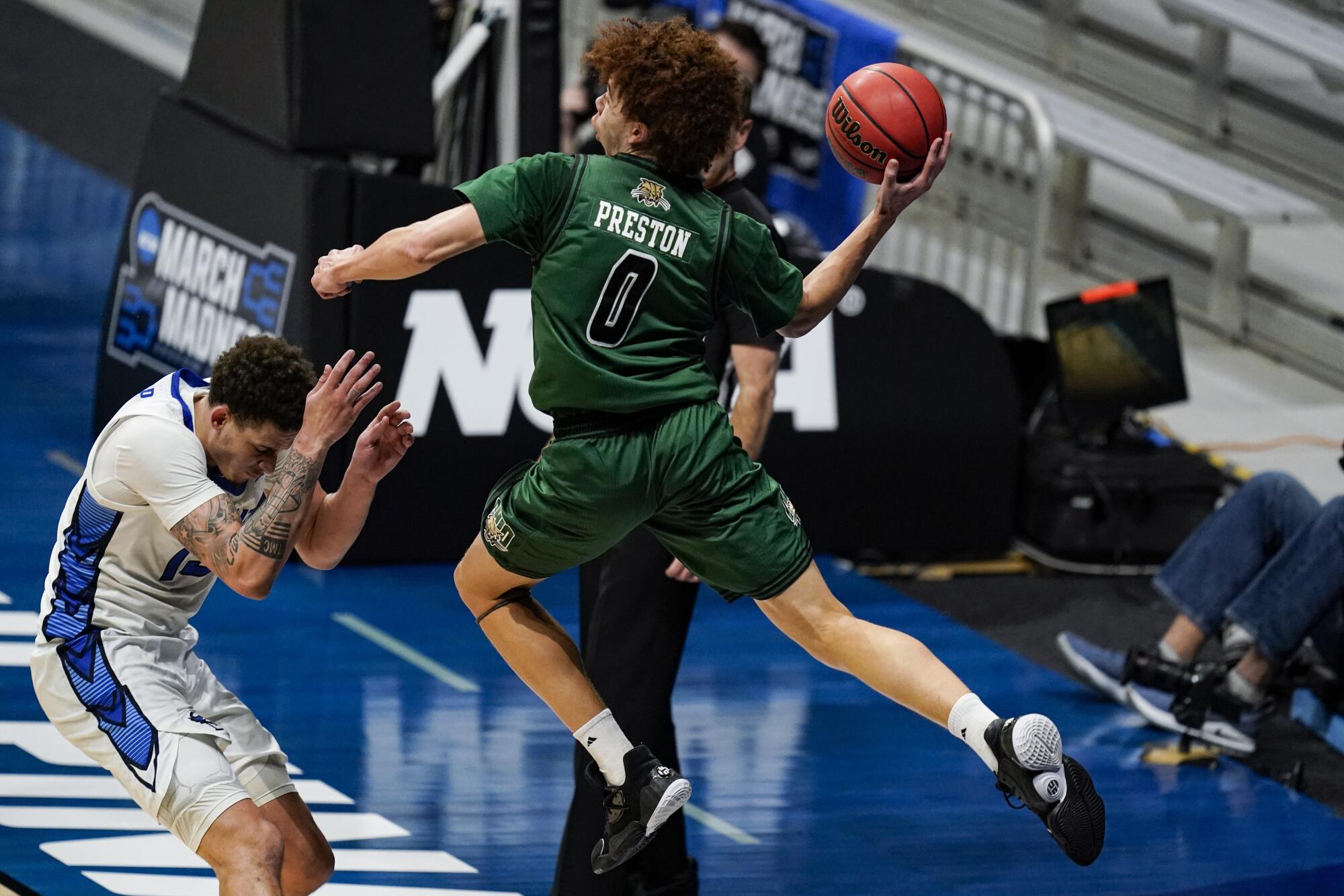
His scooter parked next to the bench before home games during the fall and winter, Preston would press Drew, the assistant who once tutored Clippers coach Tyronn Lue when he was a rookie guard, for details about how Giannis Antetokounmpo lived in the weight room after arriving in the league and how the coach saw the game.
He debates with coaches, devoured the motivational book “Chop Wood, Carry Water,” and is always watching, noticing how early president of basketball operations Lawrence Frank arrives at the office, how Jackson daps up every teammate and coach, and how Jackson and Paul George improved their handle by dribbling with a heavy ball. Preston, in turn, has rested his boot-encased foot on a scooter and practiced dribbling until 2 a.m.
“A really special guy,” Frank said. “For a guy his age to kind of have the thirst and curiosity and just the care of anyone that he kind of touches in the building, [it’s] a really unique trait.”
It could be instinctual, like the way he plays the game. Or it could be learned behavior. Remember, Phillips said, Preston was forced to get better while watching from the sideline in high school.
“He’s built for this,” Phillips said.
::
Preston sank into a stuffed chair in a hotel lobby in mid-March after a workout. It was his favorite time of year, because between college conference tournaments and the NBA, he could watch games all day.
Preston told staffers he wants the same kind of encyclopedic memory as LeBron James and Chris Paul, stars known for preparation that can sniff out opponents’ tendencies, so he watches any game he can put on a screen with the focus his mother once demanded. Jackson has so much respect for Preston’s mind that he now asks what the rookie sees during games. Drew, who likes to quiz Preston mid-game, likened the rookie’s engagement during huddles to that of the five players actually about to re-enter the game.
“I do this all at once: I watch people’s tendencies, I watch for what specific plays are run, I watch what star players like to do in certain situations, people’s body language; I watch a lot of things,” Preston said. “I watch a lot of college this year. I watch a lot of NBA. I just love basketball.”
The mental reps have been paired with physical recovery. Preston added 12 pounds of muscle, with wing Terance Mann joking he is “looking like the Hulk now,” and changed his shot form. Though he expects to be cleared for full contact soon, he’s still testing his foot with various movements and calls his timeline “day by day.”
“Now that I can do some things, I’m just really eager to do more,” Preston said. “If I’m healthy enough and I’m good enough to play, 100% I’d definitely love to play.”
All-Star wing Paul George participated in Clippers practice Thursday for the first time since injuring his shooting elbow in December.
Yet Preston is not there yet and once cleared, the game will come at him fast. There is only so much the game can be thought through before it must be played and adjustments made on the fly, a hurdle Jackson called his toughest to handle when he was a rookie.
“For a young guy that can be a little intimidating, particularly if you’re playing with veteran players, because the minute you miss something they kind of look at you sideways,” Drew said. “It happens and I’ve seen it. You just have to be able to understand that you’re being depended on from the veteran guy to the young guy and you have to be able to handle it. If there’s a situation of where there’s a player out there that’s not happy because he doesn’t feel he’s getting the ball, then you’ve got to know how to deal with that.
“He just comes across as a player who will embrace that. He’s not going to shy away from it, and I’m not going to let him shy away from it.”
More to Read
Get our high school sports newsletter
Prep Rally is devoted to the SoCal high school sports experience, bringing you scores, stories and a behind-the-scenes look at what makes prep sports so popular.
You may occasionally receive promotional content from the Los Angeles Times.

